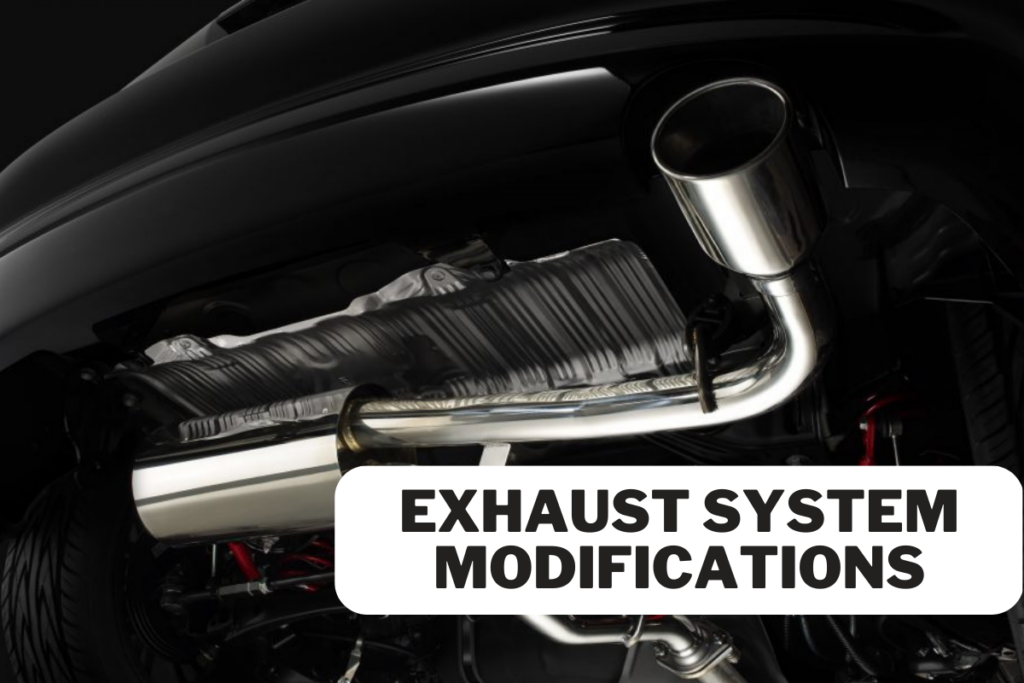When it comes to modifying your vehicle for better performance, upgrading the exhaust system is one of the most popular and effective modifications you can make. A car exhaust system is responsible for removing waste gases produced during the combustion process, but it also plays a critical role in determining the engine’s performance. There are different aspects to think about when it comes to enhancing vehicle performance through exhaust system modifications.
In addition to the benefits of upgrading your exhaust system and the types of performance exhaust systems available, choosing the right exhaust diameter, proper exhaust system tuning, addressing legal and emissions compliance, and conducting a cost-benefit analysis are all critical components. In this article, we will delve more seriously into these key factors to help you make the most informed decision when upgrading your car exhaust system.
Benefits of Upgrading Your Exhaust System
One of the preceding advantages of upgrading your vehicle exhaust system is increased horsepower and torque. When you replace the restrictive stock exhaust system with a high-performance exhaust system, you allow the engine to breathe better, which can result in improved performance. Additionally, a performance exhaust system can improve fuel efficiency by reducing backpressure in the engine, leading to better gas mileage.
Performance Exhaust vs Stock Exhaust
Stock exhaust systems are designed to meet government regulations and to keep the vehicle as quiet as possible. However, this design often results in restrictions that limit airflow and hinder performance. In contrast, performance exhaust systems are designed to maximize airflow, which results in a more powerful engine. Furthermore, performance exhaust systems are often made with higher-quality materials, which can improve the longevity of the system.
Backpressure and Engine Performance
Backpressure is the resistance that exhaust gases encounter as they try to exit the engine. Stock exhaust systems are designed to create a certain amount of backpressure to improve fuel economy and reduce emissions. However, this backpressure also limits the engine’s performance. Upgrading to a performance exhaust system can lower back pressure, which permits the engine to breathe more easily, resulting in improved performance.
Types of Performance Exhaust Systems
Several types of performance exhaust systems include axle-back, cat-back, and header-back systems. Axle-back systems replace the exhaust system from the rear axle to the muffler, while cat-back systems replace the entire exhaust system from the catalytic converter to the muffler. Header-back systems replace the entire exhaust system from the headers to the muffler. Each system has its advantages, and the choice often depends on the specific goals of the modification.
Material Choices for Performance Exhaust Systems
When upgrading your car exhaust system, you will have to choose between different materials. The most common materials used in performance exhaust systems are stainless steel and mild steel. Stainless steel is a long-lasting and corrosion-resistant material ideal for high-performance applications. Mild steel is a more affordable option, but it is less durable than stainless steel.
Choosing the Right Exhaust Diameter
When upgrading your exhaust system, one critical factor is choosing the right exhaust diameter. The diameter of the exhaust piping plays a vital role in the exhaust system’s performance. A larger exhaust diameter typically results in better performance, but there are limits to how big you can go without negatively impacting engine performance. Furthermore, the diameter must be chosen based on your engine’s size, power output, and the type of driving you to intend to do. A performance exhaust specialist can help you determine the ideal exhaust diameter for your vehicle.
Proper Exhaust System Tuning
Proper exhaust system tuning is another essential factor when upgrading your vehicle exhaust system. A performance exhaust system can significantly improve your vehicle’s performance, but it must be tuned correctly to achieve the desired results. Improper tuning can lead to a range of issues, including poor fuel efficiency, rough idling, and even engine damage. An experienced performance exhaust installer can help you ensure your new exhaust system is tuned correctly to maximize performance and avoid potential issues.
Performance Exhaust Sound
In addition to improving performance, upgrading your vehicle’s exhaust system can enhance your vehicle’s sound. The sound of your vehicle’s exhaust is an essential aspect of its overall character, and many performance enthusiasts seek out a specific exhaust note. Various performance exhaust systems available can provide different sound profiles, ranging from aggressive and loud to subtle and subdued. Choosing a performance exhaust system that provides the desired sound while also delivering the desired performance improvements is essential.
Legal and Emissions Compliance
When upgrading your vehicle exhaust system, it’s crucial to consider legal and emissions compliance. The laws and regulations surrounding exhaust system modifications vary by location, and it’s important to ensure that your vehicle remains compliant with local laws and regulations. Many aftermarket exhaust systems are designed to comply with emissions standards, but checking for compliance before installing any new exhaust system is crucial.
Cost-Benefit Analysis of Upgrading Your Exhaust System
Finally, a cost-benefit analysis is crucial when upgrading your vehicle exhaust system. Upgrading your exhaust system can be a significant investment, and ensuring that the benefits outweigh the costs is essential. The cost of a performance exhaust system can vary widely, founded on aspects such as the type of system, the materials used, and the complexity of the installation. It’s important to weigh the potential performance gains and other benefits against the cost of the system to determine whether it makes financial sense for your situation.
Conclusion:
Upgrading your vehicle exhaust system is an effective way to enhance your vehicle’s performance. By choosing a high-performance exhaust system, you can increase horsepower and torque, improve fuel efficiency, and even improve your vehicle’s sound. When selecting a performance exhaust system, it’s essential to consider factors such as backpressure, material choice, and the type of system that best suits your needs. Overall, upgrading your vehicle exhaust system is a great investment that can significantly enhance your driving experience. So if you’re looking to take your vehicle to the next level, consider upgrading your car exhaust system.

